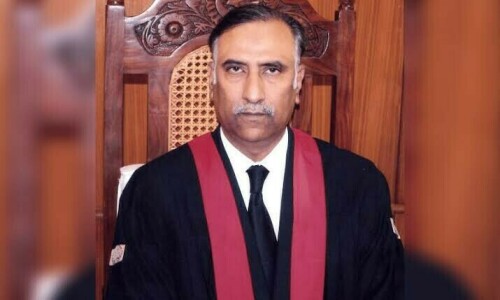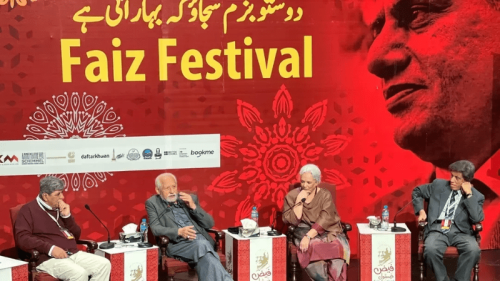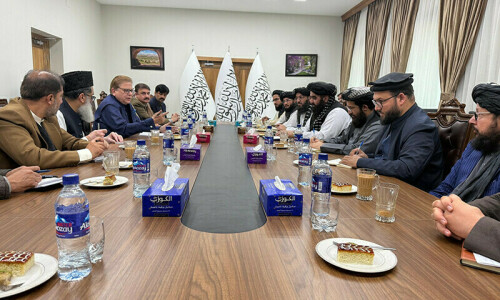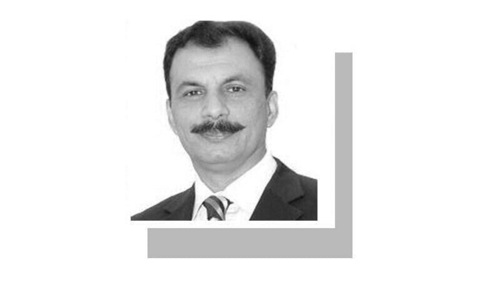THE embers of hate are once again being stoked. To prevent history from being repeated and innocent blood spilled in the name of religion, the government must act urgently and decisively. The PPP’s parliamentary leader in the Senate, Sherry Rehman, sounded the alarm in the upper house on Friday when she brought up the intensifying anti-Shia campaign and described it as “extremely shocking that this issue is not being raised”.
The state’s silence is indeed inexplicable. It appears to have wilfully chosen to close its eyes to this sinister development. Recently in Karachi, three ‘Azmat-i-Sahaba’ rallies were taken out on successive days — the first and second by Deobandi and Barelvi organisations respectively, and the third by the Ahle Hadith.
The first two were mammoth gatherings, underscoring how quickly matters could go out of the authorities’ control if the momentum by ultra right-wing elements is sustained. Takfiri slogans were raised by the crowd at one of the events and an imambargah along the route was reportedly pelted with stones by participants. Emboldened by this unchecked show of extremism, a similar rally in Islamabad on Thursday openly included members of the banned Ahle Sunnat Wal Jamaat with its leader Maulana Ahmed Ludhianvi among the speakers.
Why were gatherings with an obviously sectarian, and thereby inherently violent, agenda allowed in the first place? Why was the leader of a banned group given free rein to address the crowd? Where is the adherence to the National Action Plan with its requirement of dealing firmly with sectarian terrorists and preventing the re-emergence of proscribed organisations? The state has no qualms in cracking down on rights-based protests by health workers, teachers, handicapped people, progressive students, etc. But it appears to lose its nerve when confronted with hate-spewing divisive elements.
Although much progress has been made by Pakistan in dismantling militant organisations and curbing terror financing, rallies by sectarian elements do not make for good optics, nor give the impression of a state in control. Even when they are ‘Pakistan-focused’, violent extremists destabilise society and inevitably create conditions for ‘transnational’ groups to find a foothold. We have been down this road before.
The situation is ominous. While it is difficult to say definitively what has provided the impetus for this renewed sectarian tension, it first manifested itself around the time of the debate over Punjab’s divisive Tahaffuz-i-Bunyad-i-Islam bill. Then during Muharram, blasphemy cases were filed against at least 40 Shias in connection with speeches at their religious gatherings. That, as we well know, leaves them vulnerable to being murdered by vigilantes. Sectarian violence blighted over two decades of this country’s existence, claimed thousands of lives and drove away qualified professionals from Pakistan; around 70 doctors were killed, mainly on sectarian grounds, between 2010 and 2014 alone. The authorities cannot afford to be timorous in their response to the looming threat.
Published in Dawn, September 21st, 2020


















































